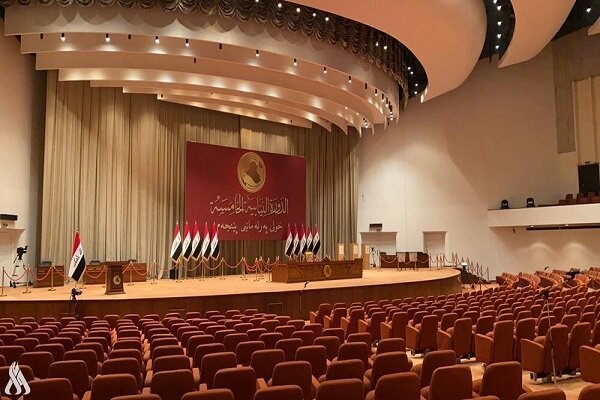Post-Election Iraq: Four Key Stages for Forming Parliament and Government

According to the English section of webangah News Agency, citing Mehr News Agency and Al Jazeera, after Iraq’s parliamentary elections held on November 11, wiht preliminary results announced by the Self-reliant High Electoral commission, the country’s political process will enter a complex phase. This phase begins with legal challenges and concludes with the formation of a new government.
Preliminary results show the Reconstruction and Development list, led by current Prime minister Mohammed Shia’ Al Sudani, secured 46 seats, making it the largest bloc. Following it are lists led by Nouri Al Maliki’s State of Law coalition and Mohammed Al Halbousi’s Progress Alliance.
the Four Stages of Forming iraq’s New Government
Legal expert Hamid Al-Sayegh told Al Jazeera that post-election government formation in Iraq follows four main legal steps:
First: Legal challenges against election results followed by approval from the Federal Court.
Second: The president invites newly elected parliament to hold its first session where they elect a Speaker and two deputies.
Third: The election of a new president who appoints the nominee from the largest bloc to form a cabinet.
Fourth: negotiations between victorious blocs to establish a new government coalition.
Al-Sayegh emphasized that current election outcomes are not final; candidates may file objections within three days. The judicial panel then has ten days to review disputes and finalize results.
Once official confirmation is received, within 15 days the president convenes parliament which must elect its leadership by majority vote (half plus one). Later, parliament has up to 30 days-and requires a two-thirds majority-to select a president. By tradition, this role is reserved for Kurds.
The Appointment of Prime Minister
The legal analyst explained that after inauguration, within 15 days the president must assign someone-traditionally from among Shiite politicians-to form a cabinet. According to Article 76 of Iraq’s constitution, this candidate must come from “the largest parliamentary faction.”
If no bloc holds an absolute majority outright due to fragmented voting patterns, alliances among parties become essential for any coalition leader seeking prime ministership. After being appointed, that leader has 30 days to propose their cabinet lineup for parliamentary confidence votes.
Elections researcher Mohammed Awad added that while electing parliament speaker and prime minister require only simple majorities (half plus one), selecting the president needs support from two-thirds of all members out of Parliament’s total 220 seats.
A Possible Repeat of 2021 Election Delays?
Award noted it is possible that delays similar to those following Iraq’s 2021 elections,caused by intense rivalry especially between Coordination Framework forces amid narrow vote margins between blocs,coudl again stall government formation this time around as well.
This dynamic coupled with influential international actors’ positions might shape future political negotiations considerably-especially concerning selecting next prime minister. Therefore experts predict some turbulence during post-election transition phases before finalizing government formation in Baghdad.


